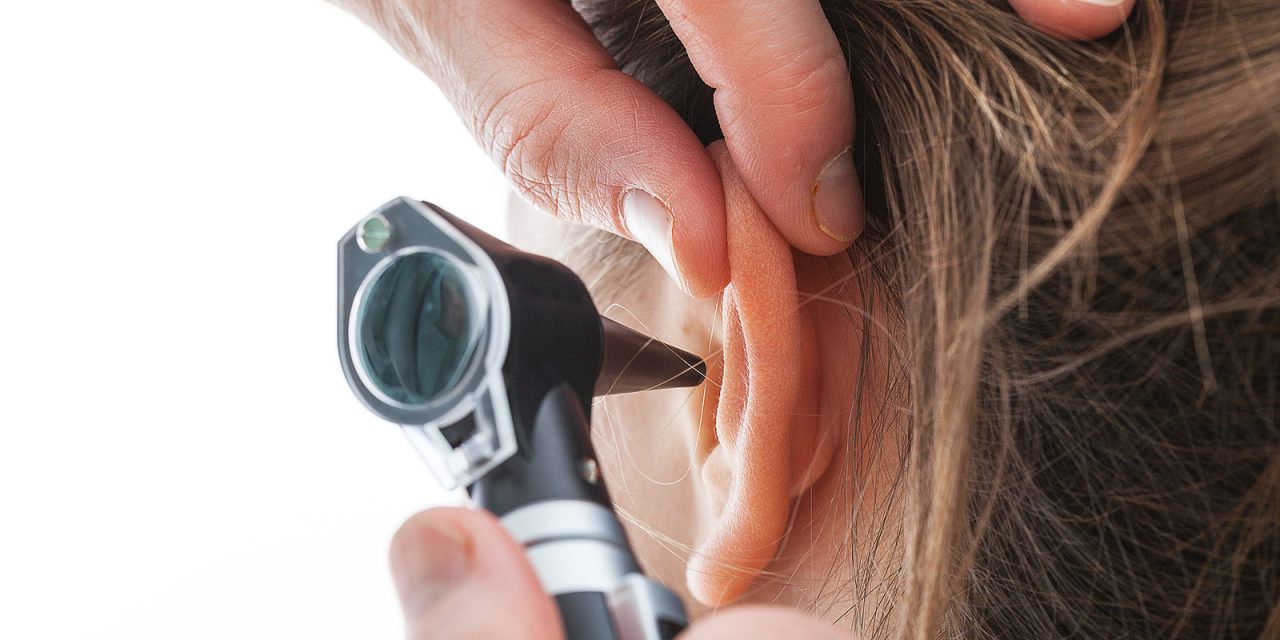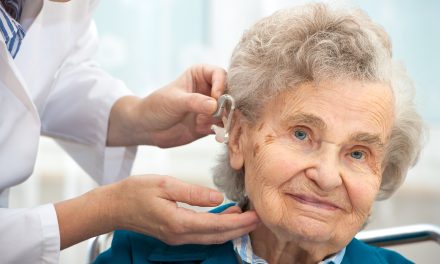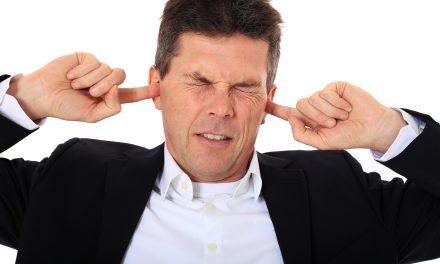Maintaining hearing health is a growing concern for many, especially with an aging population and the increased exposure to loud noises in daily life. Nutritional support plays a critical role in preserving and potentially improving auditory function. An array of vitamins and minerals have been identified that support hearing health. Among these, antioxidants, including vitamins A, C, and E, have been highlighted for their potential to combat oxidative stress that can damage the delicate inner ear structures.
Supplements that show promise for supporting hearing include magnesium, which plays a role in protecting the auditory system and maintaining normal nerve function. Folic acid, a B vitamin, contributes to healthy blood circulation, which is essential for optimal ear function. Potassium, another mineral crucial for hearing health, helps regulate fluid levels in the body, including the inner ear. While research is ongoing, these supplements, combined with a balanced diet and healthy lifestyle, may aid in maintaining and improving hearing.
Key Takeaways
- Nutritional supplements can play a role in maintaining and improving hearing health.
- Antioxidants and certain minerals are integral for protecting the ear’s structures.
- A balanced diet and supplements can complement each other to support ear health.
Understanding Hearing Loss
Hearing loss can take many forms, varying in severity from mild to profound. It can impact anyone at any stage of life, although it’s commonly associated with aging. The understanding of the causes and types of hearing loss is critical for recognizing how supplements may play a role in managing this condition.
Types of Hearing Loss
Sensorineural hearing loss is the most prevalent type. It occurs when the inner ear or the nerve pathways to the brain are damaged. Often, this damage results from aging or prolonged exposure to excessive noise, which can be mitigated through precautions like wearing ear protection.
Conductive hearing loss, on the other hand, happens when there are obstructions or malfunctions in the outer or middle ear that prevent sounds from being carried to the inner ear. Common causes include ear infections, fluid buildup, or malformations of the ear structure.
Common Causes
The primary cause of hearing loss is often age-related, known as presbycusis. Over time, the delicate hair cells in the cochlea may degrade, reducing their ability to transmit sound signals effectively.
Excessive noise is another leading cause of hearing impairment. Continuous exposure to loud environments can lead to noise-induced hearing loss (NIHL), which can be prevented with appropriate hearing protection. Certain medical conditions and medications can also contribute to auditory system damage, resulting in various degrees of hearing loss.
The Role of Diet in Hearing Health
A nutritious diet influences overall health, which includes hearing ability. Specific food groups and dietary patterns can contribute to maintaining and potentially improving hearing health.
Mediterranean Diet
The Mediterranean diet is renowned for its emphasis on whole grains, fruits, vegetables, and nuts, all of which are fundamental for hearing health. Antioxidants found in fruits and vegetables may counteract oxidative stress related to hearing loss. In fact, a study referenced on Soundly mentions a connection between antioxidants like vitamins A, C, and E and reduced audio-vestibular dysfunction in older adults. Moreover, the consumption of omega-3 rich foods such as fish, which is common in the Mediterranean diet, has been associated with a decreased risk of age-related hearing loss.
Dietary Approaches to Stop Hypertension
The Dietary Approaches to Stop Hypertension (DASH) diet is another pattern that can contribute to hearing health. It encourages the reduction of sodium intake, which is crucial because excessive sodium can impede blood flow and potentially harm the delicate structures within the ear. The DASH diet also promotes the intake of nutrients like potassium, magnesium, and vitamins, all of which are mentioned in a post on AARP, indicating their role in hearing health. For instance, bananas and cantaloupes, which are integral parts of the DASH diet, are highlighted for their potassium content, supporting the regulation of body fluids, including the fluid in the inner ear.
Key Vitamins and Minerals for Hearing
Adequate levels of certain vitamins and minerals are essential for maintaining healthy hearing. They contribute to various aspects of auditory health, from protecting against oxidative damage to ensuring proper nerve function.
Antioxidant Vitamins
Vitamin A – Essential for maintaining the health of the ears’ mucous membranes, vitamin A plays a crucial role in hearing. Deficiency can lead to an increased risk of hearing loss.
Vitamin C and Vitamin E – These vitamins act as antioxidants, protecting the inner ear against the damage caused by free radicals. Studies suggest that antioxidants may help preserve hearing by combating oxidative stress, which can damage the cochlea and other auditory structures.
Mineral Essentials
Magnesium – Magnesium can help protect the ears from noise-induced hearing loss by improving blood flow and acting as a protective barrier for the delicate hair cells within the ear.
Zinc – This mineral is vital for immune system function, and it’s been shown to be particularly beneficial in preventing and treating ear infections, a common cause of hearing issues.
Folate (vitamin B9) – Adequate folate intake is essential as it helps to generate new cell growth and increase circulation, which are both critical for keeping the auditory system in good working condition.
Potassium – Potassium helps regulate the fluid in the inner ear, which is critical as fluid levels change with hearing functions. Potassium levels tend to drop with age, potentially contributing to age-related hearing loss.
Vitamin B12 – This vitamin maintains the health of nerve cells, including those needed for hearing. A deficiency in vitamin B12 can lead to hearing disturbances.
Ensuring a balanced intake of these vitamins and minerals can improve hearing health and function.
Supplements to Support Hearing
Supplements can play a role in maintaining or possibly improving hearing health. Particular nutrients have been identified as beneficial to auditory function, and integrating these into one’s diet might support hearing.
Omega-3 Supplements
Omega-3 fatty acids, typically found in fish, have been linked to various health benefits, including the potential to support hearing. They are thought to contribute to the health of blood vessels in the ear, thus promoting good auditory function. To integrate these nutrients into your diet, one can consider taking supplements such as fish oil capsules or other omega-3 concentrated products.
Herbal and Natural Remedies
Herbal supplements such as Ginkgo biloba are understood to aid in improving circulation, which is essential for maintaining ear health and function. Coenzyme Q10 is another supplement suggested to enhance energy production in cells, which could be beneficial for hearing. Additionally, some have turned to natural remedies like noni and Panax ginseng, although scientific support for their benefits to hearing is not as well established. Furthermore, vinpocetine, derived from the periwinkle plant, is sometimes used for its purported effects on memory and cognitive function, which may extend to auditory benefits, although more research is needed to confirm these effects.
The Impact of Inflammation and Blood Flow
The optimal hearing function relies heavily on maintaining good blood flow to the auditory system and minimizing inflammation that can lead to tissue damage. These two aspects are interconnected; proper blood flow can reduce the risk of inflammation, a known factor in various health issues, including heart disease and high blood pressure.
Inflammation Reduction
Chronic inflammation within the body can damage delicate structures in the ear, contributing to hearing loss. Supplements that contain anti-inflammatory agents can be beneficial in preserving hearing. For instance, Curcumin, the active compound found in turmeric, has properties that help reduce inflammation. Additionally, Omega-3 fatty acids, primarily found in fish oil, are linked to anti-inflammatory effects and could be essential in protecting auditory health.
Improving Circulation
Blood circulation is crucial for maintaining healthy ear function; adequate blood flow delivers essential nutrients and oxygen to the ear. Supplements that boost circulation can help. L-arginine is an amino acid that helps to improve blood flow by expanding blood vessels. Additionally, managing blood pressure is vital, as high blood pressure can impair circulatory health. Ginkgo Biloba promotes blood circulation, which includes the vessels supplying the ear, thus supporting hearing.
Lifestyle and Environmental Considerations
In preserving and improving hearing capabilities, lifestyle choices, and environmental factors play significant roles. Attending to these can mitigate hearing loss risks and promote auditory health.
Avoiding Noise Damage
Excessive noise exposure is a leading cause of hearing damage. Minimizing exposure to loud environments, such as concerts or construction sites, is crucial, where noise levels can easily exceed safe thresholds. Individuals should use protective gear, like earplugs or noise-canceling headphones, to shield their ears from potential harm. Ensuring adherence to safety standards and using protective equipment are pivotal measures for occupational hazards.
Physical Activity Benefits
Regular physical activity may contribute positively to maintaining a healthy auditory system. Exercises that promote blood circulation, including aerobic activities such as walking, cycling, or swimming, can help ensure the inner ear receives a sufficient blood supply. This is vital as good circulation can support the functioning of the cochlea. A healthy diet that includes necessary vitamins and antioxidants supports these efforts and may also impact hearing health.
Advancements in Hearing Aid Technology
Recent years have witnessed significant improvements in the realm of devices designed for hearing enhancement, with bold strides made in the sophistication of cochlear implants and hearing aids. These advancements empower audiologists and otolaryngologists to offer patients more effective solutions for auditory challenges.
Cochlear Implants
Cochlear implants have made leaps forward, incorporating finer arrays of electrodes that allow for more precise stimulation of the auditory nerve. Enhanced processing strategies in these implants have led to more natural sound quality and improved speech comprehension in noisy environments.
Hearing Aids Enhancements
Modern hearing aids are not just devices to amplify sound; they now come with a plethora of enhanced features focused on improving the quality of life for their users. Digital noise reduction, directional microphones, and wind noise management contribute to a clearer auditory experience. Moreover, some devices offer wireless connectivity, allowing for direct streaming of audio from smartphones and televisions.
When to Seek Professional Help
Individuals should consider professional assistance when they notice signs of hearing impairment, as early detection can be crucial for effective treatment. An audiologist is the best resource for diagnosing and managing hearing-related health issues.
Signs of Hearing Loss
- Sudden or Gradual Loss of Hearing: If one experiences a rapid decline in their ability to hear or a gradual decrease over time, it is critical to take action.
- Difficulty Following Conversations: Struggling to understand speech, especially in noisy environments, or frequently asking others to repeat themselves may indicate a problem.
- Tinnitus: Persistent ringing or noise in the ears can be a symptom of hearing loss and warrants professional evaluation.
Consulting an Audiologist
- Conducting a Hearing Test: An audiologist can perform various hearing tests to assess the nature and extent of the loss.
- Expertise in Hearing Health: As hearing loss is a significant health issue among American adults, audiologists are equipped with the expertise to provide personalized treatment plans.
Individuals can take proactive steps toward better hearing health by recognizing the symptoms and consulting with an audiologist.
Preventive Measures and Care
Protecting one’s hearing and engaging in regular assessments can significantly reduce the risk of hearing-related issues such as tinnitus and sensorineural hearing loss. As aging is a natural contributor to hearing degradation, taking preventative steps is vital for prolonged auditory health.
Hearing Protection
One must actively shield their ears from loud noises to prevent hearing damage. For instance, earplugs or noise-canceling headphones in loud environments can protect the ears from potentially harmful sound levels. This is critical for individuals working in noisy settings or frequently exposed to activities that produce high-decibel sounds. Hearing protection can mitigate the risk of developing conditions such as tinnitus, often characterized by persistent ringing or buzzing in the ears.
- Workplace: Use custom-fitted earplugs or noise-canceling earmuffs.
- Concerts/Events: Wear high-fidelity earplugs to preserve sound quality while reducing volume.
- Everyday Noise: Turn down the volume on personal audio devices and maintain a safe distance from loudspeakers.
Routine Check-Ups
Regular hearing exams are essential, especially as one ages, to detect any early signs of sensorineural hearing loss or other auditory conditions. These routine check-ups with an audiologist can help in the early identification and management of potential hearing problems. During a hearing test, the audiologist will evaluate the individual’s ability to hear various frequencies and intensities of sound, paving the way for appropriate interventions or treatments to maintain hearing health.
- Adults: They should schedule a hearing test at least once every decade until age 50 and every three years thereafter.
- High-Risk Individuals: Those with a history of hearing loss or exposure to loud noises should have more frequent examinations.
By adhering to these practices, individuals can take proactive steps to care for their hearing, potentially staving off common issues like age-related hearing degradation and tinnitus.
Nutritional Supplementation for Specific Conditions
Nutritional interventions may support managing specific auditory conditions such as age-related hearing loss and tinnitus. Essential nutrients that can aid in alleviating some symptoms associated with these conditions have been identified.
Age-Related Concerns
Age-related hearing loss, or presbycusis, often progresses with time and can impact the quality of life. Magnesium and antioxidants like vitamins A, C, and E have been connected to reducing this type of hearing loss. Increased blood flow to the inner ear and protection against oxidative stress are among the proposed benefits of these nutrients. Research suggests including supplements like folic acid to potentially slow the hearing decline associated with aging.
- Recommended Nutrients:
- Magnesium: Supports proper nerve function and may protect against noise-related damage.
- Antioxidants (Vitamins A, C, E): Help protect ear cells from oxidative stress.
- Folic Acid: Linked to a decrease in the rate of hearing loss progression.
Addressing Tinnitus
Tinnitus, characterized by a persistent ringing in the ears, may be influenced by various factors, including exposure to loud noise, certain medications, and nutrient deficiencies. Supplementation with zinc has shown promise in some studies for reducing the perception of tinnitus in individuals with low serum zinc levels. Additionally, some researchers are exploring the role of magnesium in alleviating tinnitus symptoms, though more extensive studies are required to confirm these findings.
- Recommended Nutrients:
- Zinc can help reduce tinnitus symptoms, particularly in those with zinc deficiency.
- Magnesium: May contribute to improved ear function and reduce tinnitus symptoms.
When considering supplementation, it is essential to consult healthcare professionals, primarily since certain drugs and antibiotics can interact with these nutrients and affect auditory health. Supplements should complement a balanced diet and not serve as a standalone treatment for hearing conditions.
Summary and Key Takeaways
When considering supplements to support hearing health, focusing on those that have shown potential in scientific studies or clinical trials is crucial. Antioxidants like vitamins A, C, and E have been linked to a reduced risk of audio-vestibular dysfunction in older adults and may benefit overall ear health. The role of antioxidants in combating free radical damage in the inner ear suggests they may be an essential component of a hearing health diet.
Magnesium, a mineral found in certain supplements, has been observed to potentially improve low-tone hearing when used alongside steroid treatments, especially in cases of sudden hearing loss. In addition, magnesium has been cited as possibly helping to alleviate the severity of tinnitus symptoms.
Here’s a brief list of beneficial nutrients for hearing health:
- Vitamins A, C, and E: Antioxidants that protect against inner ear damage.
- Magnesium: May improve hearing recovery and reduce tinnitus.
It should be noted that while dietary adjustments and supplementation can contribute to protecting and improving hearing, they should not be seen as a definitive cure for hearing loss. Maintaining a balanced diet alongside these supplements is recommended. It’s also advisable to consult healthcare professionals before starting any new supplement regimen to ensure they do not interfere with existing conditions or medications. For more detailed information on how specific nutrients may support hearing health, readers should look into the resources provided by health professionals and studies on this subject.
Frequently Asked Questions
Exploring the relationship between dietary supplements and hearing health, this section addresses common inquiries regarding nutrients that support ear function and whether specific vitamins can potentially prevent or mitigate hearing loss.
What nutrients are known to benefit hearing health?
Antioxidants, such as vitamins A, C, and E, are associated with maintaining healthy auditory function. These nutrients help combat oxidative stress that may damage the inner ear.
Are there any natural remedies that support inner ear function?
Natural remedies could support inner ear function; for example, gingko biloba is sometimes suggested for circulation improvement, which could indirectly benefit ear health.
How does magnesium intake affect hearing capabilities?
Magnesium may protect the auditory system, especially regarding low-tone hearing loss and tinnitus, by preserving the nerve function in the auditory pathways.
Can folic acid play a role in mitigating hearing impairment?
Folic acid, a B vitamin, is linked to enhanced circulation to the ears and may contribute to the prevention of age-related hearing loss by helping to maintain blood flow and reducing homocysteine levels in the blood.
What dietary choices support the maintenance of good ear health?
A balanced diet rich in omega-3 fatty acids, minerals like zinc, and specific vitamins is advised to preserve ear health. Hydration and moderate salt intake are also beneficial.
Is there evidence that supplements can reverse or prevent hearing loss?
While some studies suggest potential benefits, the efficacy of supplements to reverse or prevent hearing loss has been debated with conflicting results. It’s essential to consult with a healthcare provider for personalized advice.













